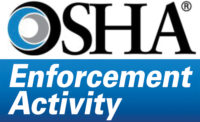Workplace safety and health in Iran
Are the regs really enforced?

 Answers provided by Hamed Khoshniat, Safety Officer, Safety and Fire Fighting Department, NIOPDC. Hamed is an expert training courses instructor with seven years of experience in the field of oil and gas safety matters.
Answers provided by Hamed Khoshniat, Safety Officer, Safety and Fire Fighting Department, NIOPDC. Hamed is an expert training courses instructor with seven years of experience in the field of oil and gas safety matters.
hamedkhoshniat@yahoo.co.uk
Oil and gas refinery safety is currently a very hot topic in the U.S., due to recent plant accidents. Is it one of the most important safety issues in Iran?
In response to your question, I tell you “YES, IT IS”, because we believe that an accident is such as a teacher, all accident investigation results teach us very important lessons.
Does Iran have the equivalent of the U.S. Occupational Safety and Health Administration (OSHA), which inspects facilities and can issue penalties?
Yes, we have a governmental organization like OSHA in Iran; their inspectors’ responsibility is to find the root cause of accident in a work place.
If an Iran OSHA exists, is it truly serious about enforcement and issuing sizeable fines? Or is it a weak enforcement agency?
Yes, it is truly serious. In addition to above mentioned governmental organization, in all Oil and Gas facilities, we have an active department by the name of HSE, a HSE department is responsible for employment’s health and safety. They try to no having accident and injury by implementing HSE regulation and rules in site, they are very hard on this matter.
How did you educate yourself on NFPA and API standard codes?
NFPA standard codes are our tools in safety department, when you assess a situation in a view of safety point; you need to have a standard and reliable measure for this purpose.
NFPA, API and ANSI standard codes are our references in safety of oil and gas refineries really.
Above standard code documents are clear and talk to you simple, so you could meet your requirement easily.
Below are some examples about above standard codes that are related to safety of oil and gas facilities directly.
1) NFPA 704 is focused on NFPA hazards rating code
2) NFPA 77 talks about static electricity hazard
3) ANSI Z 400 is about MSDS preparation
5) API RP 2219 is around Vacuum truck safety in petroleum refinery
6) ANSI Z 390.1 is about Hydrogen sulphide training course
We have On the Job Training courses for all safety officers, one training course is about how to use a standard code, I passed it successfully.
How do material safety data sheets (MSDSs) help you in protecting oil and gas refineries, and in fire fighting?
MSDS is a useful document with a wide range of application in Oil and Gas refineries.
Reading of last part of my paper(MSDS), you find some questions, these kind of questions are usual for a safety officer, he (or she) find the related answers by referring to MSDS document only, this means that a MSDS document has very important information, if you know how to use it.
MSDS is a golden key to open all locked doors.
Looking for a reprint of this article?
From high-res PDFs to custom plaques, order your copy today!





